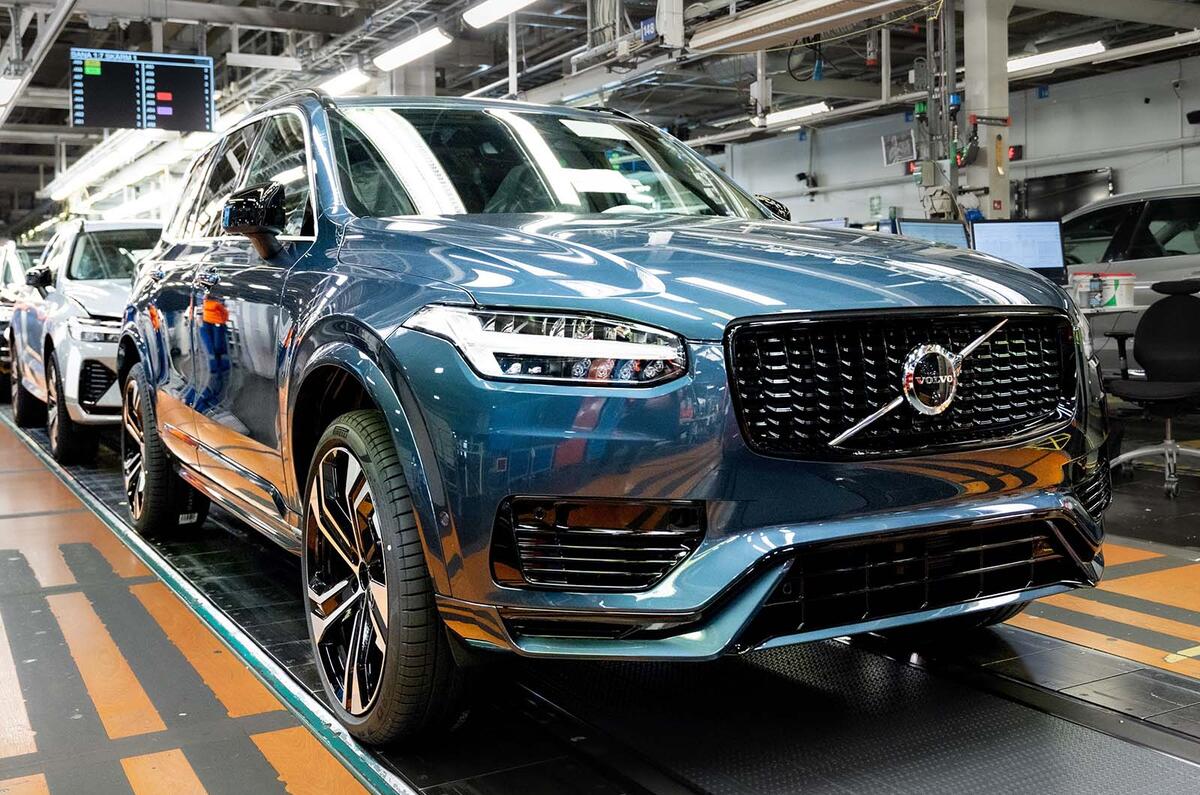Volvo has produced its last ever diesel-engined car, accelerating its drive to become an electric-only brand by 2030.
As confirmed by the brand, the last diesel rolled off the brand's production line at its Torslanda plant in Sweden on 26 March.
This brings an end to Volvo's 45-year relationship with diesel engines and makes it the first major ‘legacy’ manufacturer to entirely ditch the fuel type.
The endling is a blue Volvo XC90 equipped with a turbocharged 2.0-litre four-pot. The SUV will be displayed at the new World of Volvo museum, due to open to the public on 14 April.
As recently as 2019, the majority of Volvo cars sold in Europe were powered by diesel. Back in 2008, 95% of XC90 sales were diesel.
Volvo said: "For a long time, our diesel engines were synonymous with reliability and efficiency, and they meant a great deal to us for many decades. Indeed, the success of our diesel cars played a significant role in our evolution into a premium brand.
"Only five years ago, the diesel engine was our bread and butter in Europe, just like it was for most other car makers. The majority of the cars we sold in Europe in 2019 ran on diesel, while electric models were just starting to gain traction.
"The all-electric direction we’re now heading towards is the right one to take, and we do so with our flag held high."
Volvo will shift to electric-only car production by 2030, with factories being refitted to accommodate the production of EVs and battery drivetrains.
It confirmed that it would end diesel powertrain production by 2024 in a statement at last year's Climate Week event in New York.
Boss Jim Rowan previously said that “electric powertrains are our future”, claiming that Volvo is “fully focused on creating a broad portfolio of premium, fully electric cars that deliver on everything our customers expect from a Volvo”.
After years of continual decline, diesel sales in the UK have recently been on the uptick. A 12% rise was reported by the Society of Motor Manufacturers and Traders (SMMT) last December.
Premium brands account for 40% of diesel sales in Europe, marking a 10% increase over their 2015 share.
The best-selling diesel in the UK in 2023 was by far the Land Rover Defender - a key rival to the XC90.









Join the debate
Add your comment
I have a Land Rover Discovery Diesel. It seems very efficient despite the fact it's a heavy car, not sure I'd have fancied a pure petrol equivalent
New diesels are down to 6.3% market share in the UK so far in 2024, down 9.2% on 2023. Diesel is in fact dying in the UK. Those buying new diesel Land-Rover Defenders are the last dinosaurs standing. Extinction awaits. As for the idea that a diesel engine is efficient, as mentioned by the Volvo spokesperson, what are they comparing it to? A steam engine? A Saturn rocket? The textbook view is that a typical diesel automotive engine operates at around 30% to 35% of thermal efficiency. About 65-70% is rejected as waste heat without being converted into useful work. However, critics say that in the real world, combustion engines are more like 20% efficient.
So ICE is 20% efficient in the "real" world, so are solar panels and we all know how wonderful they are :)
You're right there, solar panels are certainly efficient hence the millions of them dotted around world.
The stupidity of that statement is mind blowing!20% is far better than 0% you get in the absence of the solar panels. Unbelievable...